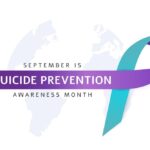If you have been through something so painful or difficult that it surpassed your ability to cope, you may find that it is taking you some time to recover from the emotional results. There is nothing wrong with you if you’re not feeling like yourself after a traumatic event. At The Pavilion in Williamsburg, Virginia, many of our patients have had one or more traumatic experiences. Our team of mental health professionals is trained to help them work through whatever may be causing them to experience psychiatric symptoms.
Understanding Trauma
It can be a bit tricky to define trauma because what is traumatic for one person may simply be moderately upsetting for someone else. This is because our unique set of coping skills and supports may impact how we perceive challenging circumstances and what we are able to do to manage them. In general, however, most mental health professionals would agree that the following are examples of events that are likely to be traumatic because they could surpass a person’s ability to cope:
- The sudden, unexpected, and/or violent death of a loved one
- Living in a war zone
- Engaging in military combat
- Natural disasters
- Experiencing abuse – physical, mental, or sexual
- Being in a serious car accident
Common Responses to Trauma
After a person has been through something traumatic, it is not uncommon for them to:
- Have increased anxiety, sadness, or anger
- Struggle to concentrate
- Experience sleep disturbances
- Have recurring thoughts about the traumatic event
Over time, with proper support, most people recover from trauma, and these responses will fade away.
When Trauma Responses Don’t Improve
For some trauma survivors, their symptoms don’t get better over time. They may struggle with:
- Excessive worry, sadness, or fear
- Frequent crying
- Flashbacks, intrusive thoughts, or nightmares about the event
- Anger, resentment, and irritability
- Avoidance of people, places, or things that remind them of what happened
- Isolation from loved ones
- Headaches, stomach, or digestive issues
- Being easily startled
These are signs that a person is having a hard time recovering from the trauma. This is more likely to occur if a person has already been through trauma in the past, they have a personal or family history of substance use disorders or mental illness, or they don’t have a strong support system. Struggling to bounce back following a traumatic event is not a sign of weakness or poor character. It just means that they went through something that was too much.
Ways to Cope With Trauma
There are many ways to manage your responses to traumatic events. It is important to remember that some of the options you have may be more likely to lead to improved long-term well-being than others. Try not to rely on options that only provide short-term relief, without helping you heal.
- Avoid the use of alcohol and other drugs
- Reach out to trusted people in your life
- Prioritize maintaining your routines and self-care, such as getting enough sleep, maintaining a healthy, well-balanced diet, or exercising regularly
- Try out some mindfulness strategies that can help to keep you grounded in the present moment, such as yoga, journaling, or meditation
- Show yourself some compassion by ensuring that you’re not just expecting yourself to “get over it” or “suck it up” and that you’re giving yourself time to heal and adjust
- Remember that your responses are normal reactions to abnormal circumstances
- Find reasons to celebrate
- Lean into music, art, or other methods of creative expression
Support for Trauma Survivors
Going through something traumatic can sometimes disrupt a person’s daily life or lead to ongoing challenges. If this happens to you or if you don’t have a strong existing group of friends and family to encourage your healing, it is crucial to reach out for additional support. This could include:
- Joining a support group. Other people who have had an experience like yours may be able to offer you advice and encouragement from their own lives.
- Contacting a crisis line. Calling or texting 988 will put you in contact with a trained crisis counselor, who can help you develop a plan for how to move forward.
- Starting therapy. A mental health therapist can listen to your experiences, teach you additional coping skills, and help you find ways to reach out to your family and friends for more support.
- Looking into medications. It may be helpful to explore medications for depression, anxiety, or other mental health disorders that arise following a traumatic event.
At The Pavilion, we recognize that the trauma our patients have experienced is an important aspect of their ongoing experience. We strive to offer services that are trauma-informed, to reduce the risk of triggering a person’s trauma responses or re-traumatizing them.





